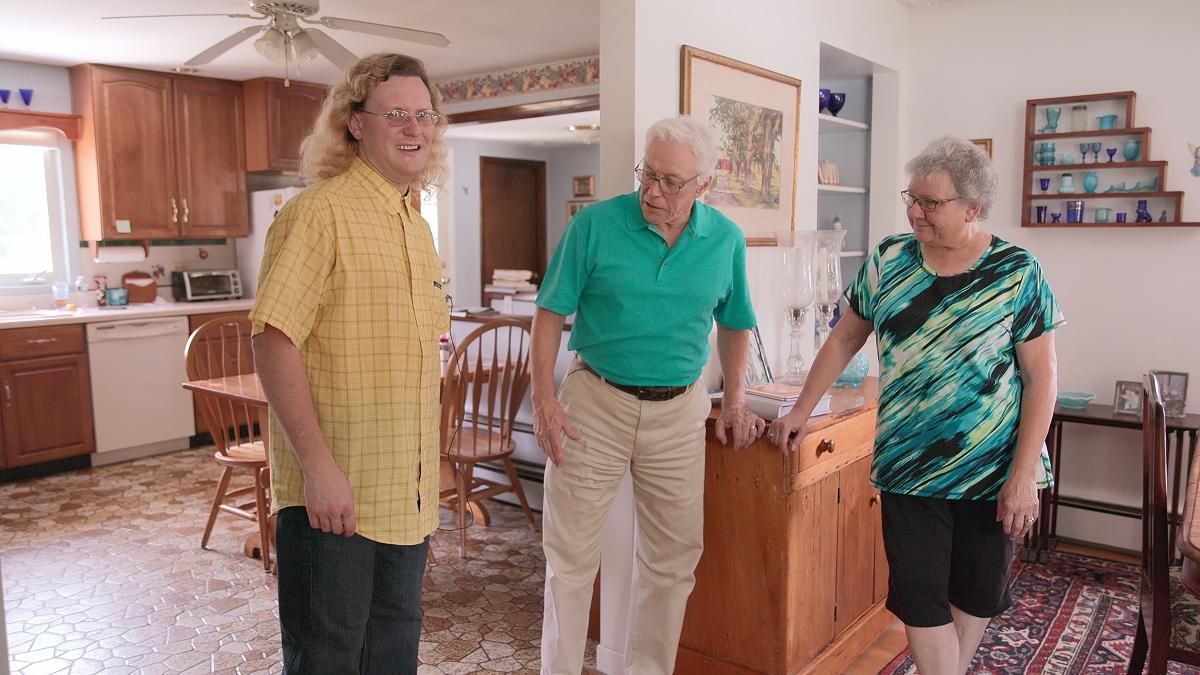Love knows no boundaries, and neither does the spectrum of human connection. Dating on the spectrum James has become a growing topic of interest, offering insights into how individuals with autism navigate the complexities of romantic relationships. Whether you're on the spectrum, know someone who is, or simply want to understand more about this unique journey, this article will provide valuable information to guide you through the world of dating and relationships for individuals with autism.
As society becomes more inclusive and aware of neurodiversity, the conversation around dating on the spectrum has gained momentum. James, a prominent advocate for autistic individuals in relationships, sheds light on the challenges and triumphs of forming meaningful connections while navigating autism. This article aims to explore the nuances of dating on the spectrum through James's experiences and expert advice.
By delving into the experiences of James and other individuals on the spectrum, we hope to empower readers with practical tips, emotional insights, and actionable strategies to foster healthy and fulfilling relationships. Let’s embark on this journey together and discover the beauty of love in all its forms.
Read also:Devlin Duck Hodges Net Worth The Complete Guide To His Wealth And Success
Table of Contents
- Biography of James: A Neurodiverse Advocate
- Understanding the Spectrum: What It Means to Date on the Spectrum
- Common Challenges in Dating on the Spectrum
- Effective Communication Tips for Neurodiverse Couples
- Building Trust and Emotional Connection
- The Importance of a Support System
- Navigating Dating Apps as an Autistic Individual
- Long-Term Relationships on the Spectrum
- Expert Advice from James: Insights and Strategies
- Resources for Further Learning
Biography of James: A Neurodiverse Advocate
Who is James?
James is a renowned advocate for neurodiversity and relationships. Born and raised in a supportive family, James was diagnosed with autism at an early age. This early diagnosis allowed him to develop a deep understanding of his strengths and challenges, which he now shares with the world. Over the years, James has become a voice for autistic individuals seeking meaningful relationships.
Key Achievements and Contributions
James has authored several books on dating on the spectrum, delivered TED Talks, and participated in numerous workshops aimed at fostering better understanding between neurodiverse and neurotypical individuals. His work focuses on breaking down barriers and promoting acceptance in the dating world.
| Full Name | James Anderson |
|---|---|
| Date of Birth | March 15, 1987 |
| Occupation | Author, Advocate, Speaker |
| Key Achievements | Published three books, delivered TED Talks, conducted workshops globally |
| Website | www.jamesonthespectrum.com |
Understanding the Spectrum: What It Means to Date on the Spectrum
Defining the Autism Spectrum
The autism spectrum is a wide range of conditions characterized by varying degrees of social, communication, and behavioral differences. Dating on the spectrum James refers to the unique experiences and challenges faced by individuals with autism when forming romantic relationships. Understanding the spectrum is crucial for fostering empathy and support in these relationships.
Unique Traits in Romantic Relationships
Individuals on the spectrum often bring unique traits to their relationships, such as honesty, loyalty, and a deep capacity for love. However, challenges such as difficulty in interpreting social cues or managing sensory sensitivities can make dating more complex. James highlights the importance of embracing these differences and creating a supportive environment for both partners.
Common Challenges in Dating on the Spectrum
While dating on the spectrum offers rewarding experiences, it also presents challenges. Some of the most common hurdles include:
- Difficulty in reading social cues and body language.
- Managing sensory sensitivities in social settings.
- Expressing emotions in ways that may differ from neurotypical partners.
- Navigating misunderstandings due to communication differences.
James emphasizes the importance of patience and open communication in overcoming these challenges.
Read also:Will Estes And Wife A Deep Dive Into Their Love Story And Life Together
Effective Communication Tips for Neurodiverse Couples
Clear and Direct Communication
One of the most effective strategies for neurodiverse couples is clear and direct communication. James advises partners to express their needs and expectations openly, avoiding assumptions that can lead to misunderstandings.
Using Visual Aids and Written Communication
Visual aids and written communication can be powerful tools for individuals on the spectrum. James suggests using calendars, to-do lists, or even written notes to ensure clarity and understanding in the relationship.
Building Trust and Emotional Connection
Building trust and emotional connection is a cornerstone of any successful relationship. For individuals on the spectrum, this process may require additional effort and understanding. James recommends focusing on shared interests, mutual respect, and consistent support to strengthen the bond between partners.
The Importance of a Support System
Family and Friends
A strong support system plays a vital role in the success of neurodiverse relationships. Family and friends can provide emotional support, practical advice, and encouragement during challenging times.
Professional Guidance
In some cases, couples may benefit from professional guidance, such as therapy or counseling. James highlights the value of working with therapists who specialize in neurodiverse relationships to address specific challenges and enhance communication.
Navigating Dating Apps as an Autistic Individual
Dating apps have become a popular way to meet potential partners, but they can pose challenges for autistic individuals. James shares strategies for navigating dating apps successfully, including:
- Being honest about your diagnosis in your profile.
- Setting clear boundaries and expectations from the start.
- Choosing apps that align with your values and preferences.
By taking these steps, individuals on the spectrum can increase their chances of finding compatible partners.
Long-Term Relationships on the Spectrum
Commitment and Growth
Long-term relationships on the spectrum require commitment and a willingness to grow together. James emphasizes the importance of celebrating milestones, addressing challenges as a team, and maintaining open lines of communication to ensure the relationship remains strong and fulfilling.
Managing Change and Adaptation
Change is an inevitable part of any relationship, and individuals on the spectrum may need additional support in adapting to new circumstances. James encourages partners to approach change with flexibility and understanding, ensuring that both parties feel heard and valued.
Expert Advice from James: Insights and Strategies
James’s expertise in neurodiverse relationships offers valuable insights for anyone navigating the complexities of dating on the spectrum. Some key takeaways from his work include:
- Focusing on strengths rather than limitations.
- Creating a safe and supportive environment for both partners.
- Encouraging open dialogue about needs and expectations.
By following these strategies, couples can build strong, lasting relationships that honor the unique qualities of each partner.
Resources for Further Learning
For those interested in learning more about dating on the spectrum, James recommends the following resources:
These resources provide valuable information and support for individuals and couples navigating the world of neurodiverse relationships.
Conclusion
Dating on the spectrum James offers a unique perspective on love and relationships, highlighting the challenges and triumphs of forming meaningful connections while navigating autism. By embracing neurodiversity and fostering understanding, couples can create strong, fulfilling relationships that celebrate the strengths of each partner.
We invite you to share your thoughts and experiences in the comments below. If you found this article helpful, please consider sharing it with others who may benefit from its insights. Together, we can promote acceptance and understanding in the world of neurodiverse relationships.


